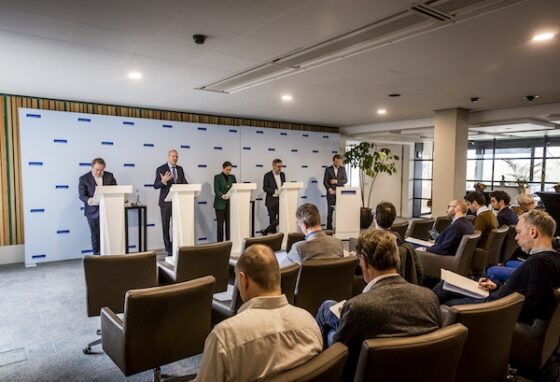More needs to be done to tackle inflation, says central bank chief


The Dutch economy and the Dutch financial sector are in good shape at present but more should be done to tackle inflation, central bank president Klaas Knot said on Thursday at the presentation of the DNB’s annual report.
The economy grew by 4.5% in 2022, the labour market is tighter than ever, and the solvency of banks, insurers and pension funds remains at stable and resilient levels, Knot said.
‘However, we are more than dissatisfied with the current high levels of inflation,’ he said. ‘The pandemic and the war caused energy and food prices to rise on the one hand, while the booming economy, buoyed by government support policies, boosted inflation on the other.’
As a result, inflation in the Netherlands was 11.6% last year. ‘And when you’re having a hard time affording your groceries, it really doesn’t matter how optimistic the macroeconomic picture is: times are tough for many,’ Knot said.
The European Central Bank, he said, ‘still has a lot of work to do’ to bring inflation back down to the 2% target. And he reiterated earlier calls for Dutch government help to target only those most in need.
Knot also emphasised three particular uncertainties facing the Dutch economy: rising interest rates, the war in Ukraine and government and corporate debate.
As interest rates rise, he said, financial institutions need to re-adjust to a world of positive interest rates and ‘wean themselves off a situation where money was free for a long time’.
The problems facing SVB in the US and Credit Suisse in Switzerland, he said, ‘are a reminder that poor risk management can get financial institutions into trouble and undermine trust in the financial sector’.
Read the full speech
Challenges facing the Dutch economy
‘The financial sector must also remain resilient with adequate financial buffers,’ the central bank chief said. ‘The fact that the sector is able to absorb shocks now is no guarantee for the future. The past few weeks have been a reminder that enforcing buffer requirements is beneficial for both large and small banks.’
Thank you for donating to DutchNews.nl.
We could not provide the Dutch News service, and keep it free of charge, without the generous support of our readers. Your donations allow us to report on issues you tell us matter, and provide you with a summary of the most important Dutch news each day.
Make a donation